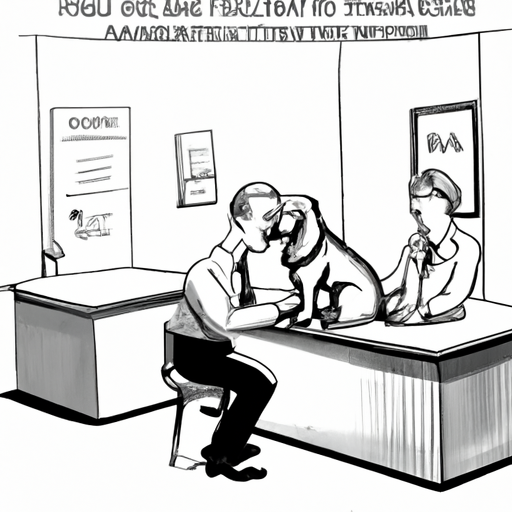1. The Final Farewell: Understanding Euthanasia
As a caregiver, you may have already experienced the heart-wrenching moment when a pet’s quality of life deteriorates beyond repair. In such cases, vets often recommend euthanasia – a gentle, painless way to help your beloved companion cross the rainbow bridge. This process is carried out with the utmost respect and care, ensuring your pet’s final moments are peaceful.
2. Aftercare: What Happens Next?
Once your beloved pet has passed away, the vet’s team will handle the body with dignity and respect. They understand that your pet was a cherished family member, and they ensure that the aftercare process reflects this sentiment. Here are some of the options that are generally offered:
- Burial at Home: If you have a yard and local regulations allow it, you may choose to bury your pet at home.
- Pet Cemetery Burial: Some people prefer a more formal burial in a pet cemetery.
- Cremation: Many vets offer cremation services. You may choose between individual cremation, where you receive your pet’s ashes, or communal cremation.
| Option | Description |
|---|---|
| Home Burial | Requires a yard, must comply with local regulations |
| Pet Cemetery Burial | Formal, often includes a small ceremony |
| Cremation | Individual or communal, ashes can be returned |
3. Grief Counseling: Healing the Wound
Losing a pet can be a devastating experience. As someone who provides care, you may find yourself overwhelmed with grief. Many veterinary clinics offer grief counseling services to help you navigate through this challenging time. These services can prove invaluable in helping you process your loss and find ways to honor your pet’s memory.
4. Commemoration: Ways to Remember Your Pet
There are countless ways to commemorate your beloved pet. Some people may choose a simple photo frame, while others may opt for a custom painting or a piece of jewelry containing their pet’s ashes. Commemorating your pet can be a powerful part of your healing process.
5. Prevention: Ensuring the Wellness of Other Pets
As a caregiver, it’s natural to want to prevent any suffering for your other pets. Regular check-ups, a balanced diet, and plenty of exercise can go a long way in ensuring your pets’ well-being. Additionally, keep an eye out for any sudden changes in behavior or appetite, as these could signal underlying health issues.
Frequently Asked Questions
Q: Can I be present during my pet’s euthanasia?
A: Yes, most vets allow and support the presence of the pet’s family during the process.
Q: What should I do if I can’t afford a proper burial or cremation?
A: Reach out to local animal shelters or pet charities. They often can provide assistance or offer lower-cost options.
Q: I’m struggling with grief. What should I do?
A: Consider reaching out to a pet loss support hotline or joining a pet loss support group. You’re not alone in your grief, and there are many resources available.
Q: How can I help my other pets cope with the loss?
A: Maintain their routines as much as possible, and give them plenty of love and attention. They may be grieving too.
Q: How can I commemorate my pet?
A: There are many ways to honor your pet’s memory, such as creating a photo album, planting a tree in their honor, or donating to an animal charity in their name.



